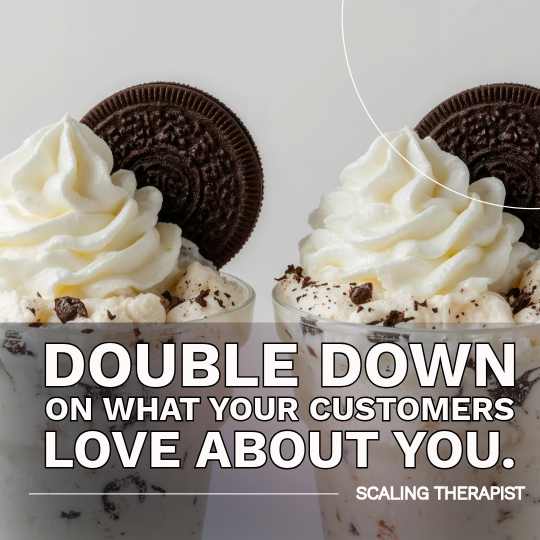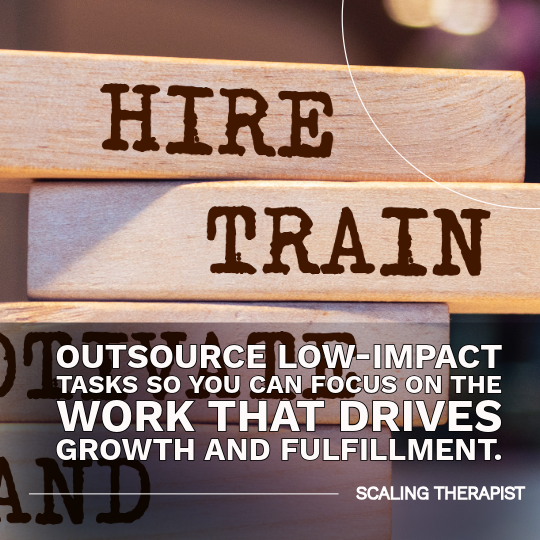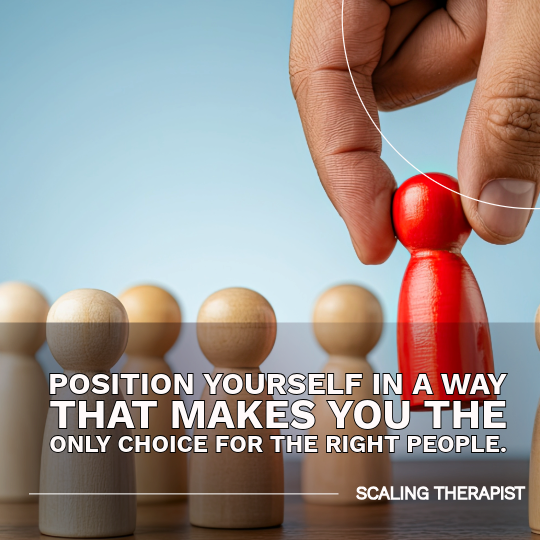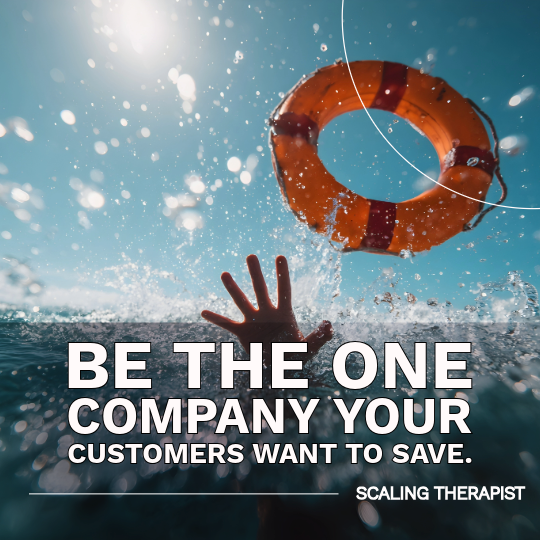How Small Businesses Can Compete—and Win—Against Big Brands
Oct 28, 2025Based on Scaling Therapy Practice Ep. 136 with Sri Kaza
In a world filled with corporate giants and billion-dollar ad budgets, how can a small business stay afloat—let alone thrive?
That’s the question explored in this episode of Scaling Therapy Practice, hosted by James Marland. His guest, Sri Kaza, is no stranger to big business. A former McKinsey partner turned small business advocate, Sri has worked with companies on both ends of the scale. But it’s his love for small, scrappy, mission-driven businesses that led him to write his new book, Unconvention: A Small Business Strategy Guide.
And in this episode, he shared something powerful: small businesses don’t just need to survive—they can actually win. How? By embracing what makes them different.
The Underdog Advantage: It’s Not Just About Size
Sri starts by flipping the script. Most people think small businesses are at a disadvantage because they don’t have the money, the staff, or the systems that big companies do.
But Sri argues that smallness itself is an advantage—if you understand how to use it.
He introduces three core ideas, what he calls the “Underdog Principles”:
1. Positioning – Be the One
Positioning is about choosing to stand for something specific, instead of trying to be everything to everyone.
Sri puts it simply:
“Can you be the one for your customer? Not just another option, but the one they think of first.”
Instead of trying to copy what the big guys do, focus on what makes you different. Do you offer more personalized care? Do you have deeper community ties? Are you known for a specific type of service or philosophy?
Big companies, like BetterHelp, have to appeal to everyone. But a local therapy practice? You can be exactly what your people need.
The trick is to lean into what you’re best at—even if it means not being right for everyone.

2. Proximity – Know Your People
Proximity isn’t just about geography. It’s about how close you are to your customers—how well you know them, and how quickly you can act on what they care about.
Sri explains it like this:
“Big companies do surveys. Small businesses have conversations.”
You don’t need a marketing department to learn what your clients want. You just need to listen, watch, and ask.
If you’re a therapist running a private practice, think about:
- How your best clients found you
- What they needed most when they reached out
- What they tell their friends about you
This kind of insight is gold. Big companies spend millions trying to get this data. You already have it. The key is to use it.

3. Purpose – More Than Just Profit
This is where small businesses really shine.
“Customers don’t rally behind brands they don’t believe in. But they will go out of their way to support a business that shares their values,” Sri says.
During COVID, many local businesses stayed alive because their customers wanted them to survive. People ordered takeout from small restaurants that never used to do takeout. They donated to GoFundMe campaigns. They bought gift cards from salons and bookstores they loved—just to keep them going.
Why?
Because those businesses meant something. They had purpose.
As a therapist, that purpose might be helping your community heal, providing trauma-informed care, or simply creating a safe space for people who feel left out by mainstream mental health services. Whatever it is—name it, own it, and build around it.

The BetterHelp Problem—and Why You Shouldn’t Panic
During the episode, James brings up a fear many therapists share: what do you do when a giant like BetterHelp moves into your space?
Sri doesn’t flinch. In fact, he loves the analogy. BetterHelp is the Amazon of therapy—big, fast, cheap, and everywhere. But that doesn’t mean small practices are doomed.
Instead of copying them, do what they can’t:
- Build real relationships
- Connect locally
- Specialize deeply
- Stand for something
“BetterHelp can’t invest in your neighborhood. They can’t show up at your school event or host a workshop in your community center,” Sri points out. “You can.”
Small businesses win when they dig deeper, not just wider.

Scaling Smart: You Are the Bottleneck
Toward the end of the episode, Sri drops another truth bomb: the biggest barrier to growth is often the owner.
He calls it “the bottleneck mindset.”
If you’re still doing everything—answering emails, cleaning your office, running payroll—you’re the one holding your business back.
“You don’t grow by doing more. You grow by doing what only you can do—and letting go of the rest.”
Scaling doesn’t mean becoming a corporation. It means being strategic with your time. Spend it where it matters most: building relationships, serving clients, creating value.
And yes—maybe letting someone else take out the trash.

Final Thoughts: Small Is Strong
The world doesn’t need more cookie-cutter businesses. It needs people who care. People with purpose. People who are close enough to listen, flexible enough to change, and bold enough to stand out.
Small businesses have something big businesses never will: heart.
When you put your mission at the center, use your size as a strength, and focus on being the best at what you do—clients will notice. And they’ll stay.
As Sri puts it:
“Go double down on the things your customers love about you.”
That’s how you build a business that lasts.

Want More?
🎧 Listen to the full episode of Scaling Therapy Practice here: https://podcasts.apple.com/us/podcast/scaling-therapist-podcast-more-income-more-independence/id1654020972
📘 Buy the book: Unconvention: A Small Business Strategy Guide by Sri Kaza https://sri-kaza.com/book
🌐 Produced by: Course Creation Studio https://www.coursecreationstudio.com
Resources Mentioned
- Unconvention by Sri Kaza – https://sri-kaza.com/book
- Bookshop.org – https://bookshop.org
- The Pumpkin Plan by Mike Michalowicz
- Effortless by Danny Iny
- The Goal by Eliyahu Goldratt
- STP 114 | How to Establish Your Brand Online with Your Resonant Identity (with Danny Iny, Part 2)
- STP 113 | How to Make Your Course an Obvious Yes, with Guest Danny Iny
15 Ways To Create Income Flow from What You Already Know
Subscription give you weekly updates on blogs, podcasts, webinars, and offers from CCS and their partners. We hate SPAM. We will never sell your information, for any reason.

